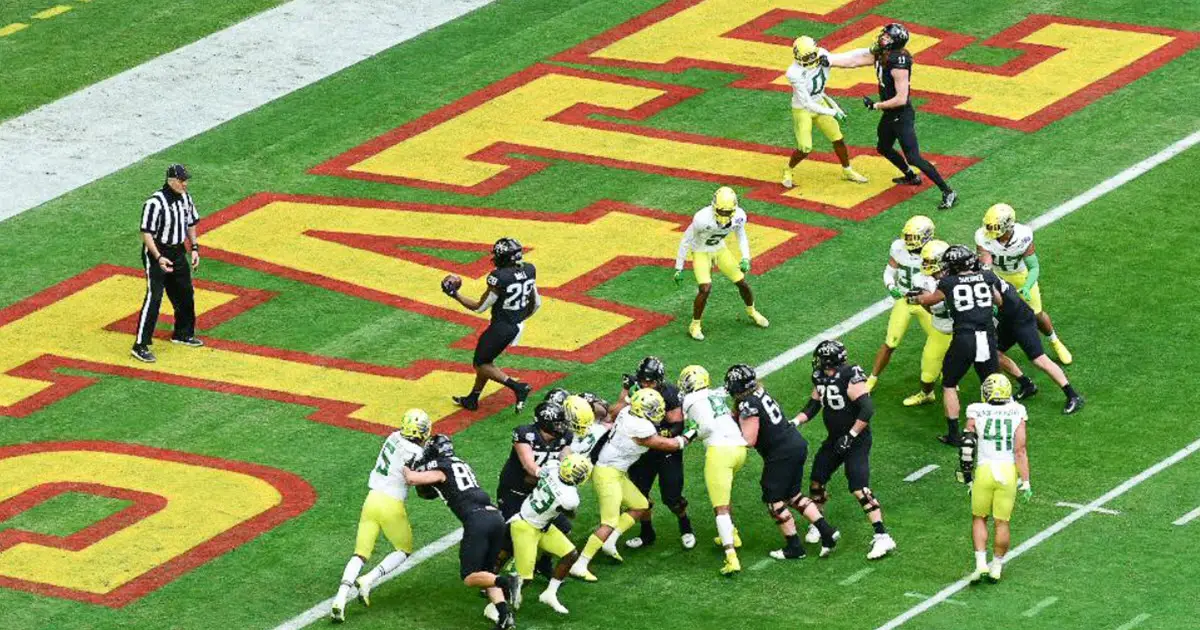34-17. That was the score Iowa State piled on the hapless Oregon Ducks in the 50th Fiesta Bowl. Oregon could do no right, gifting the Cyclones 4 extra possessions, while allowing them to possess the ball for over 70 percent of the game while rushing for 228 yards.
Contenders aren’t built overnight, or in one offseason.
Oregon has to travel to Ohio State to open next season. With no tune-up game and likely another strange offseason, the Ducks are playing (at least) a national finalist while they come off of one of the most lopsided losses of the Mario Cristobal era. They need this offseason to be perfect, nothing short of that will do, and that might not be enough to get to the playoff next year.
That is the expectation moving forward. Oregon needs to be in the playoff every year from here on out. The players are all Cristobal recruits, the coaches are all hand picked and the team is coming off of two straight conference championships. Oregon has to be a contender, or all of the flash, all of the five star recruits, all of it, is wasted.
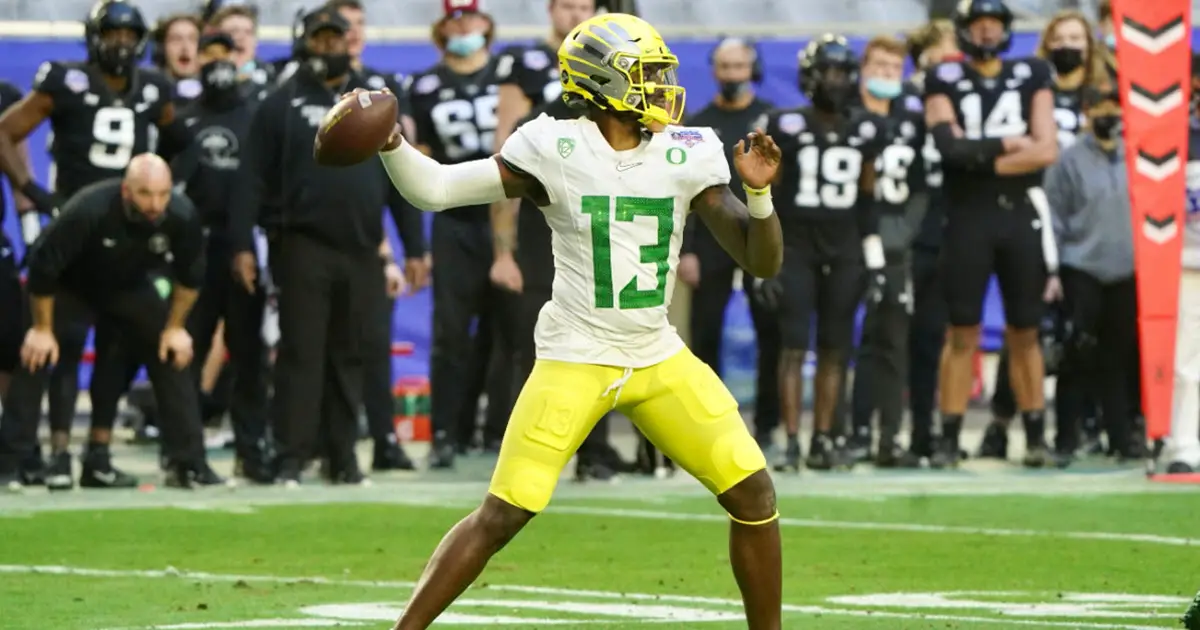
Anthony Brown had his turn…
The Offense is Lost
I wrote in 2018, my second ever article, that two quarterback systems do not work. The last two games of this season, Oregon tried to run one, and it might just be the worst one I have ever seen. Normally the QB’s are allowed to play entire drives, or entire quarters. The majority of the Ducks’ drives had both QB’s playing, sometimes only handing the ball off. All it did was throw both players out of rhythm, and destroy the confidence of an already struggling Tyler Shough.
The problem is that both players have essentially the same talent and skillset. Anthony Brown has the benefit of several years of starting experience, and leads the offense with the confidence of a player who has been there 1,000 times before. Shough is young, and hasn’t really gotten a chance to play. But he is absolutely a starting caliber QB, no matter what armchair quarterbacks seem to think.
The problem with the offense as a whole is the same as with the QB’s: Oregon has too many players with the exact same skillset, playing in an offense they do not know and are struggling to learn. Take the receivers, Johnny Johnson III, Jaylon Redd and Mycah Pittman are all smaller, dynamic receivers built to get the ball in space and use their speed and skill to get extra yards. The offense fails to highlight these skills by running so many curl routes that it hurts to watch.
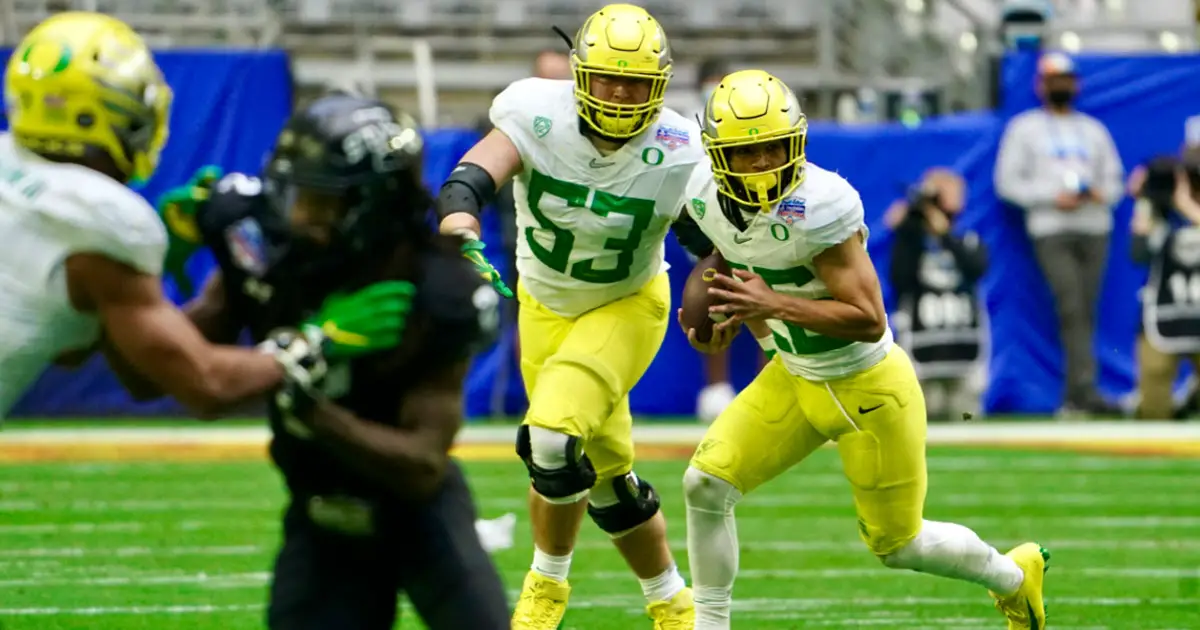
Not enough plays in the open field with playmakers.
This bowl season has highlighted the shortcomings of the new Oregon offense. The Ducks have implemented their new system, but similarly to the old one, the offense is completely unremarkable. They would like to be run first, but their running backs aren’t dynamic enough to overcome what is frankly an unimpressive run blocking scheme. This forces Oregon into constant third and medium to long situations, that they cannot overcome because they just keep throwing curls at the line to gain.
There is no scheming to get the talented players in open field. Ohio State, in their obliteration of the Clemson Tigers, ran a play that was a bootleg left, and Oregon runs this play a lot. It is a good way to get the defense off balance, but eventually, the defense realizes that the play is just out-routes to the left and adjusts. This is where Oregon and Ohio State differ; the Ducks will run the boot left over and over and over. Shough will get sacked, throw interceptions, run for four yards and overthrow targets in tight coverage. Meanwhile Ohio State runs a tight end down the right sideline, who was wide open for a touchdown.
That is the type of adjustment that changes an entire game. The defense can’t just roll left with the QB, they need to be made to cover the whole field. Unless they’re playing Oregon, who will refuse to make them stay honest.
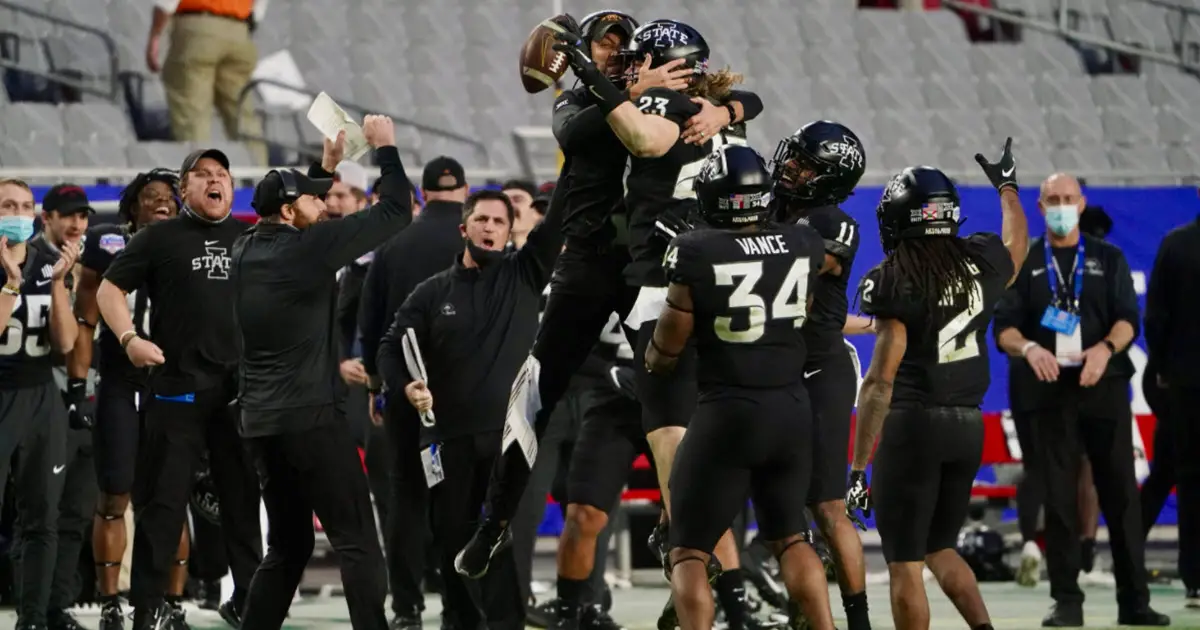
Turnovers that were so preventable…
The Defense is Too Complicated
Ok. I’m admittedly out on a limb here. I simply do not know enough about defensive scheme to say for certain that the Oregon defense is too complicated. But if I’m not certain, I’m all but certain.
It boils down to observable phenomenon. Go re-watch the Fiesta Bowl and watch the Oregon defense before any given play. Now go back and watch the other six games of the season, only the defensive snaps though.
Did you notice it? They are almost never set at the time of the snap. I’m not talking about pre-snap adjustments, or the defensive line shifting like they do. On any given play, the majority of the defenders will still be trying to figure out where they are supposed to be half a second before the snap.
Watch Jamal Hill in the Fiesta Bowl. How many times was he sprinting across the formation a second before the start of the play because he was in the completely wrong spot? It was at least four in the first quarter.
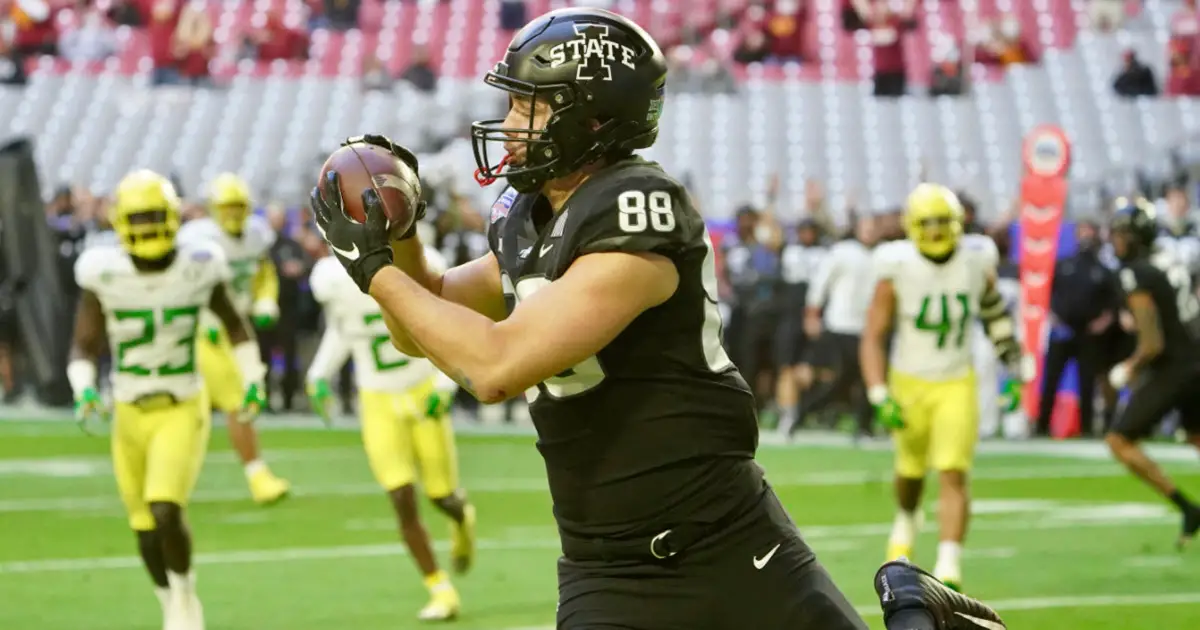
How do you have a busted coverage TD in a bowl game?
Now this might be by design. The defense might be waiting until the last possible second to show their hand. But with how often it leads to blown coverages, or linebackers looking at the sideline when the ball is snapped, why would the coaches set it up this way?
The more likely option is that the defense is just too complicated for the offseason that Oregon had. Andy Avalos is a really good coordinator, and one of the best adjusters I’ve seen, but he needed to simplify the defense this year. The Ducks lost their best linebacker, safety and cornerback, hence there wasn’t enough upper classmen to operate the defense the same as last season.
Conclusions
Oregon struggled against Iowa State, as the Cyclones dominated in every phase of the game. They identified weaknesses and exploited them everywhere on the field, while the Ducks come in with a plan and stuck with it to the bitter end. An offseason of work could get the Ducks back to where they were supposed to be this year, but is that good enough anymore?
You don’t turn a team in to a contender over one offseason, but the Ducks are going to try.
Ryan Robertson
Yuma, Arizona
Top Photo from Fiesta Bowl
Discuss this article in the new Our Beloved Ducks Forum right here.
Ryan Robertson is a defense contractor for the United States Marine Corps. A lifelong Duck fan from Grants Pass, he joined the Army out of high school. After four years as an Intelligence Analyst he decided it was time to further his education and pay more attention to his Ducks. One of Ryan’s first memories is of watching the Ducks, led by Joey Harrington, beating up on the Utah Utes in 2001. His grandfather ran track at Oregon in the ‘50s. He loves the Ducks, and has a passionate interest in reading every scrap of analysis centered around the football team.

